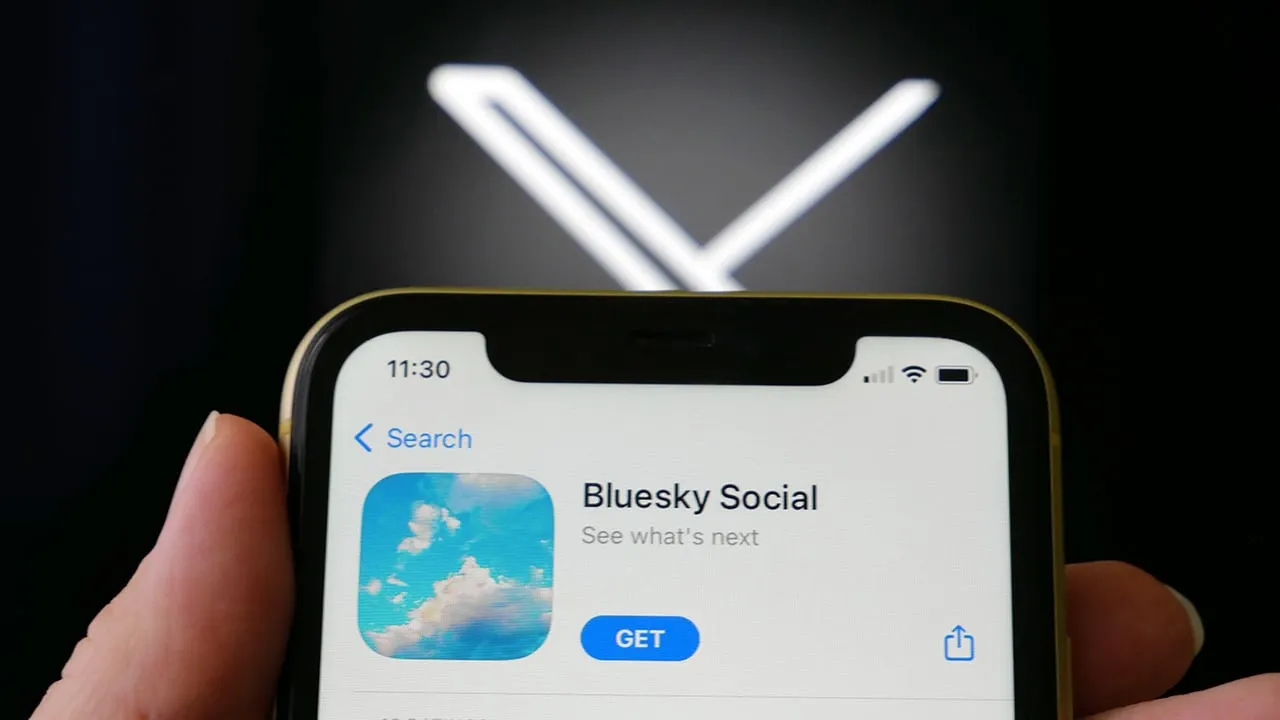Bluesky Signups Surge After Elon Musk's Twitter Says AI Can Be Trained on Tweets

Elon Musk's controversial moves at Twitter have sparked another user exodus, fueling explosive growth for decentralized rival Bluesky.
Bluesky is taking off like a rocket, and Elon Musk might've just lit the fuse. The decentralized social platform hit the 12 million user mark this week, reporting a massive surge of growth since its latest milestone of 10 million users surpassed just last month.
The platform reported Friday that it received over 1 million new signups in a 48-hour period.
What sparked this digital gold rush? Look no further than Musk's Twitter (aka X). The billionaire's been on quite a roll lately, but not the good kind. This week users found out about three major changes in the platform’s policies, some of which have rubbed longtime tweeters the wrong way.
The first one is a privacy policy update. Twitter is amending its privacy policy to allow third-party AI developers to train their models on user data. This change, set to take effect on November 15, has raised concerns about data privacy and usage—and there is no clear way to opt-out.
Next is something that may be worrisome to a more mainstream user database: Twitter is essentially removing the block function's ability to prevent users from viewing content. This change significantly weakens user control over their online experience, and has been criticized for potentially exposing users to harassment.
Finally, Twitter is moving its legal jurisdiction from California to the Northern District of Texas, an area known for its conservative judges which tend to be more aligned with Elon’s far-right views. This move has raised eyebrows among users and critics alike.
Bluesky is not being shy about capitalizing on Twitter's mess. The platform is plastering its "user-first" approach all over... well, Twitter.
“At Bluesky, we take online safety seriously,” Bluesky’s official X account tweeted, “If you want to block someone, you can! It's your experience to customize.”
Users were quick to point out how this policy update would play against Twitter’s image, and they were correct. The official Bluesky account is practically doing a victory lap, boasting about its record growth just a day after Musk's latest policy changes.
So significant was the influx that Bluesky’s servers collapsed due to the unexpected traffic spike. In fact, the app has been topping the charts in many countries like Japan, and reached the top 5 on Apple’s iOS App Store in the United States.
Musk’s meddling may be benefiting Bluesky, but Twitter is financially bleeding out. Fidelity's latest estimate puts Twitter’s value at a measly $9.4 billion—that's an 80% nosedive since Musk bought it for over $44 billion in 2022. This decline is further compounded by advertisers withdrawing due to concerns over brand safety and platform stability.
This isn't the first time Bluesky has benefited from Twitter's controversies. The platform saw a significant uptick in users when Twitter was temporarily banned in Brazil due to content moderation issues and a refusal to pay fines. At that time, Bluesky gained approximately 3 million new users in just one week, and reached a total of 10 million users mostly thanks to Brazilians joining in.
“Welcome to the one million new users in the last three days,” the platform said back then. “This is now a Brazilian app,” it replied in Portuguese.
Bluesky's rapid ascent is reflected in its impressive engagement metrics: 473 million posts, 448.5 million follows, and 1.8 billion likes, with Friday being the most active day yet in terms of engagement according to data shared by one of its official developers.
As social media users become increasingly concerned about data privacy and platform control, the landscape appears to be shifting.
Bluesky's decentralized model and emphasis on user autonomy are clearly resonating with those seeking alternatives to traditional social media giants, especially now that users are more aware of how companies use their private data and interactions to profit and train AI models.
Bluesky, of course, spawned from Twitter—albeit under previously leadership. In 2019, under co-founder and former CEO Jack Dorsey, Twitter seeded the team that eventually spun out and launched Bluesky, tasking them with developing a decentralized protocol that could one day even power Twitter along with other social apps.
But now with Musk in charge, Bluesky has instead become the most prominent Twitter rival not operated by a massive tech giant. And it's only growing.
Edited by Andrew Hayward
Related News
- No, the SEC Isn't Backing Off Solana—Here's the Latest
- Olympic Snowboarder Used Tether in Cocaine-Smuggling Murder Scheme, Feds Say
- Bitcoin 'Trump Trade' Returns as BlackRock's ETF Brings in Another $1 Billion
- Will 'Off the Grid' Take Crypto Games Mainstream?
- Scammer Gets 5 Years in Prison After Swiping $20 Million via Fake Coinbase Websites
- 'Let Him Come Home': Jailed Binance Exec’s Trial Postponed Due to Illness
- Radiant Capital’s $50M Breach Among ‘Most Sophisticated Hacks’ in DeFi History
- dGEN1 Mobile Device Launches for ‘Seamless’ Onchain Ethereum Transactions
- MicroStrategy's Bitcoin Scheme Isn't an 'Infinite Money Glitch', Says Michael Saylor
- EigenLayer Twitter Account Hacked to Share Ethereum Airdrop Scam
© 2026 DeFi.io